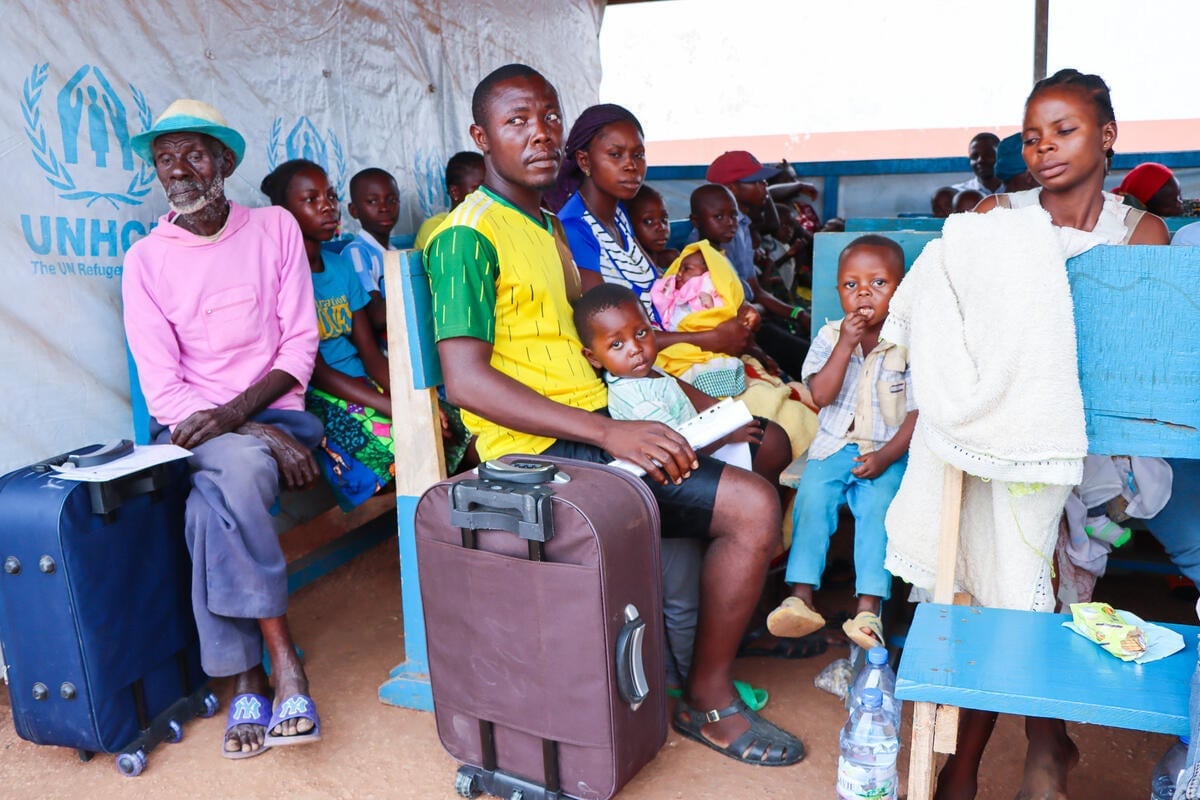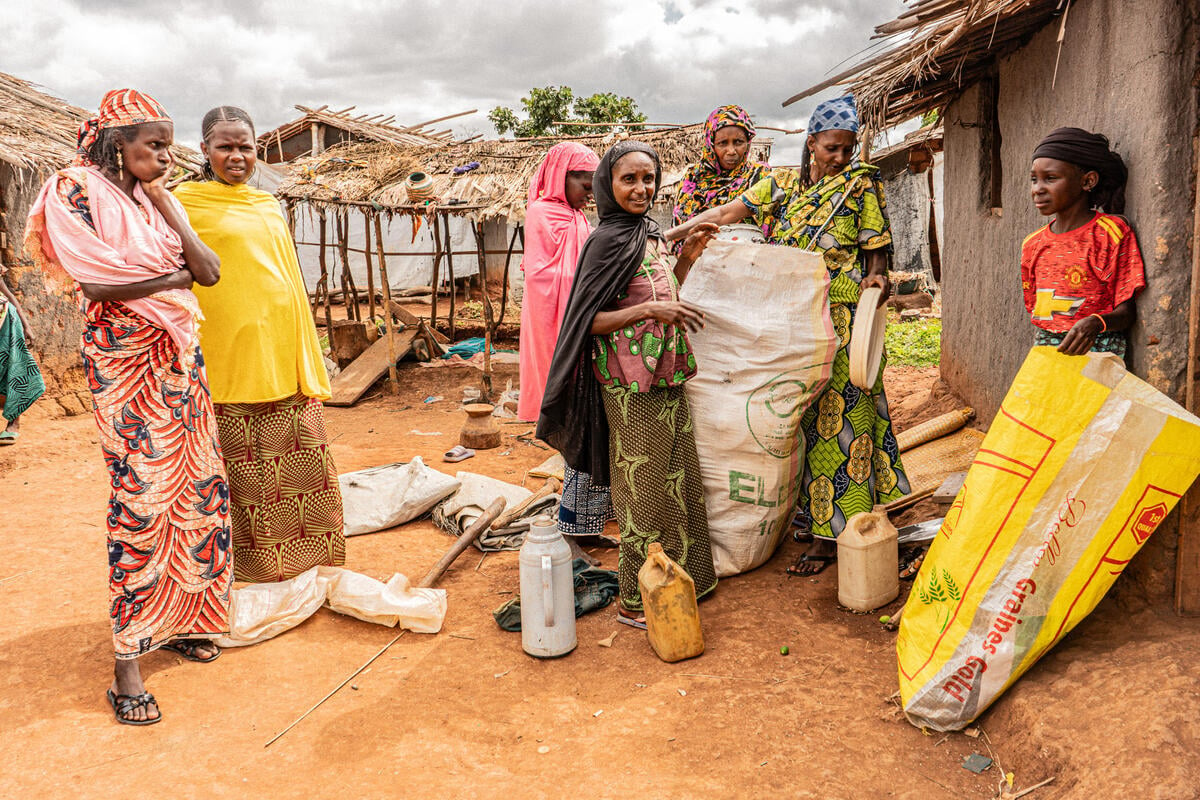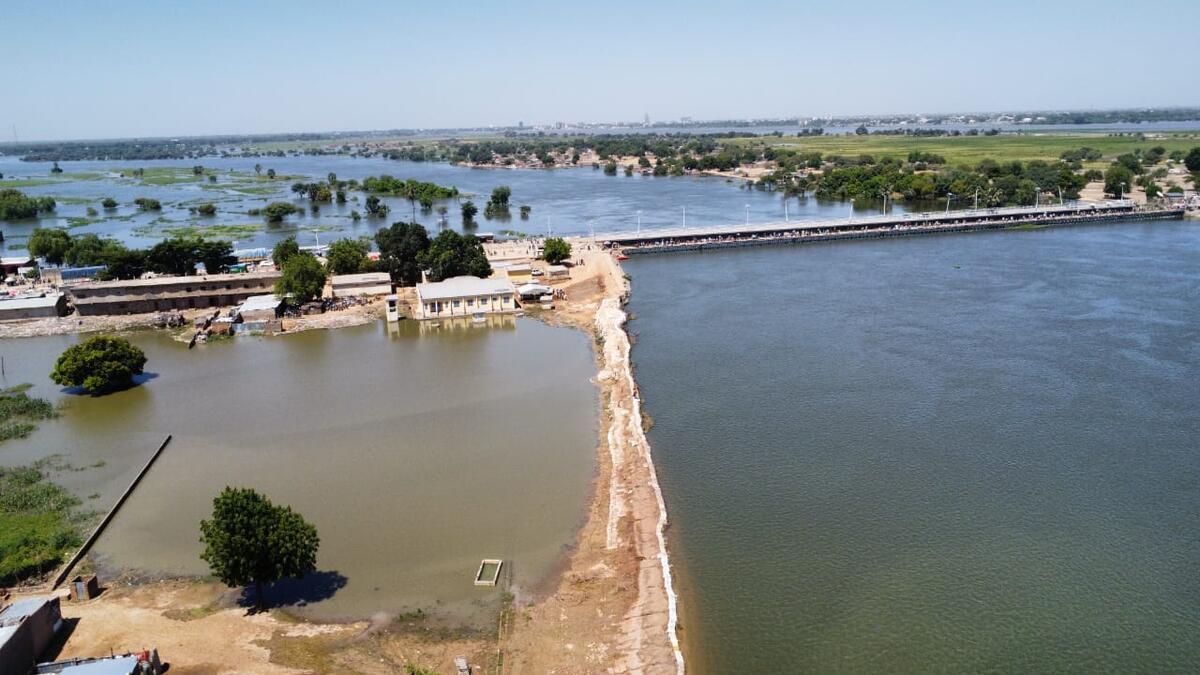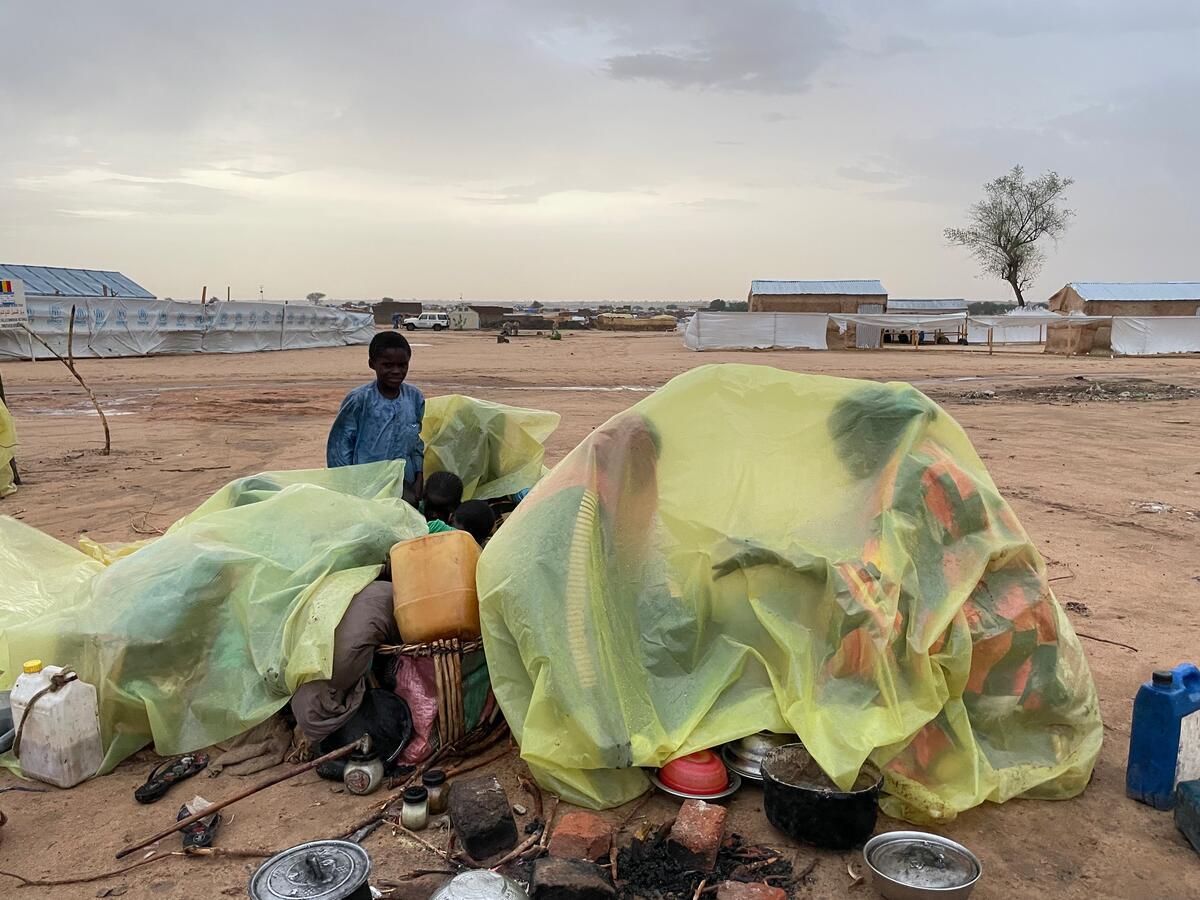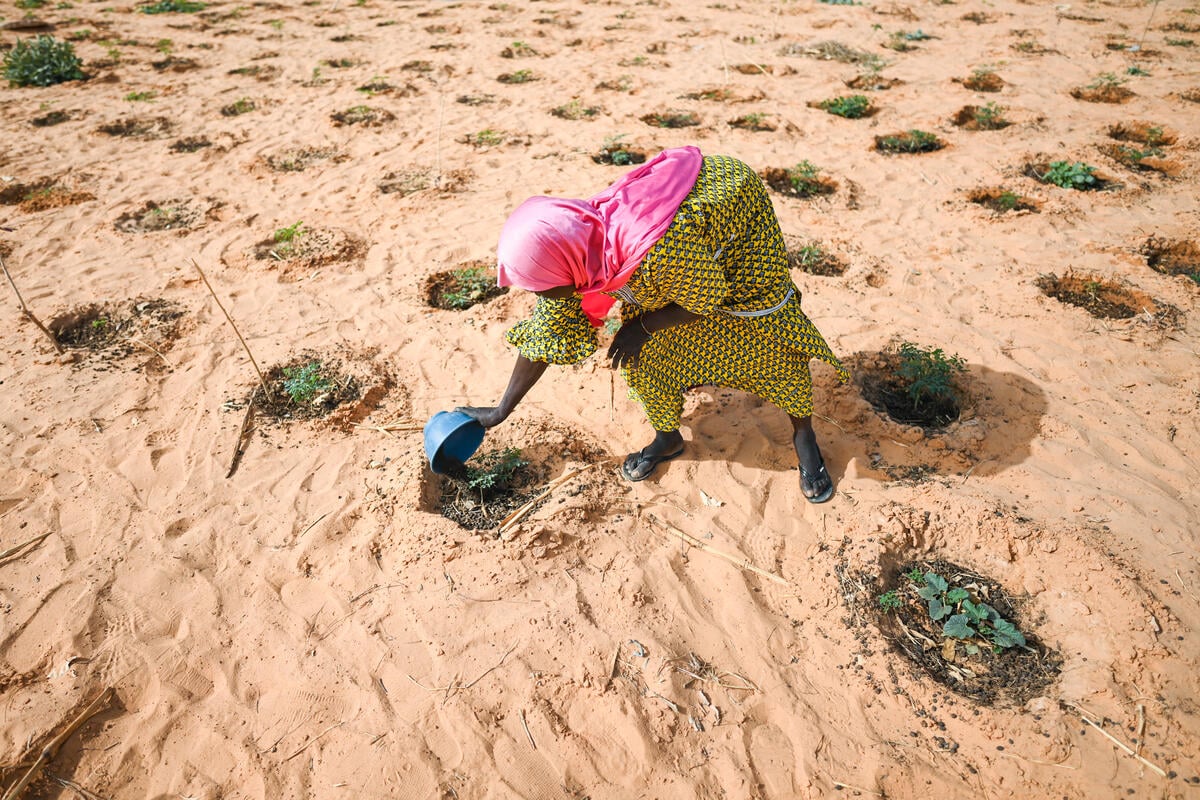Cameroon: UNHCR steps up efforts to move refugees to safety as violence spills over border
Cameroon: UNHCR steps up efforts to move refugees to safety as violence spills over border
UNHCR is stepping up efforts to move some 5,000 Nigerian refugees in Cameroon away from the border town of Fotokol amidst ongoing cross border attacks by insurgents. Refugees fled from the nearby Nigerian town of Gambaru Ngala, which fell under insurgent control earlier this month.
UNHCR has already relocated more than 8,600 to the Minawo refugee camp over the past two weeks as cross-border fighting worsened. Some 100 Nigerian refugees continue to cross into Cameroon every day.
Several incursions into Cameroon have been pushed back by the Cameroonian army, but the security situation remains precarious. On 18 September, insurgents attacked a series of Cameroonian villages located along the border with Nigeria and burnt more than ten churches. This time, villagers were alerted beforehand, and fled before the attackers arrived. Ten days earlier, insurgents attacked villages in the area, killing eight people and seizing 300 motorbikes.
Since the beginning of the crisis in Nigeria, local authorities in Cameroon have reported the arrival of 43,720 Nigerian refugees, including 26,720 who have been registered by UNHCR. The crisis in north eastern Nigeria has also displaced some 70,000 people to neighbouring Niger, according to authorities, and some 1,600 to Chad. An estimated 650,000 people are internally displaced in northeastern Nigeria due to the insurgency.
In Fotokol, living conditions are dire. Refugees are living in overcrowded classrooms and in makeshifts shelters constructed with pieces of cloth. They rely on the local authorities and villagers for food. The refugees told our teams that they are living in absolute fear as insurgents launch artillery shells into the town and want to relocate as soon as possible.
The camp's facilities and services need urgent expansion. New arrivals are living in 57 community shelters and classrooms with little or no privacy. The camp's only health post is overwhelmed, as most of refugees transferred to Minawao are sick. There is a high prevalence of respiratory infections among children due to exposure to wind and cold during the time spent in the open at the border. We are increasingly concerned about children arriving malnourished. Rapid nutritional screening involving 2,189 children from 6 to 59 months old revealed that 3.1% of them suffered from severely acute malnutrition, and up to 4.3% suffered from moderate acute malnutrition.
Currently, there are three water pumps at the camp, supplying less than 8 liters of water per person per day which is far below the standard of 20 liters per person per day. There are only 69 latrines and 80 showers functional for a total population of nearly 15,000 people, which poses a serious health risk in this part of Cameroon where cholera is endemic.
In response, we have started to build more family shelters, some 100 per day. We have just completed the construction of an emergency health post and our partner, International Medical Corps, has deployed medical staff to provide emergency health care to new arrivals. We also started discussions with the Ministry of Health to increase the capacity of the local health centre. We are building 10 boreholes and, in the meantime, we are working with the town's fire brigade to provide the camp with drinking water by truck.
Education remains a real challenge. There are nearly 2,500 children of school going age among the new arrivals, but only 14 classrooms and 11 teachers in the camp.
For more information on this topic, please contact:
- In Dakar, Hélène Caux on mobile +221 77 333 12 91
- In Cameroon, Djerassem Mbaiorem on mobile +237 70 40 18 41
- In Niger, Benoit Moreno on mobile + 227 92192417
- In Geneva, Karin de Gruijl on mobile +41 79 255 92 13
- In Geneva, Melissa Fleming on mobile +41 79 557 9122


